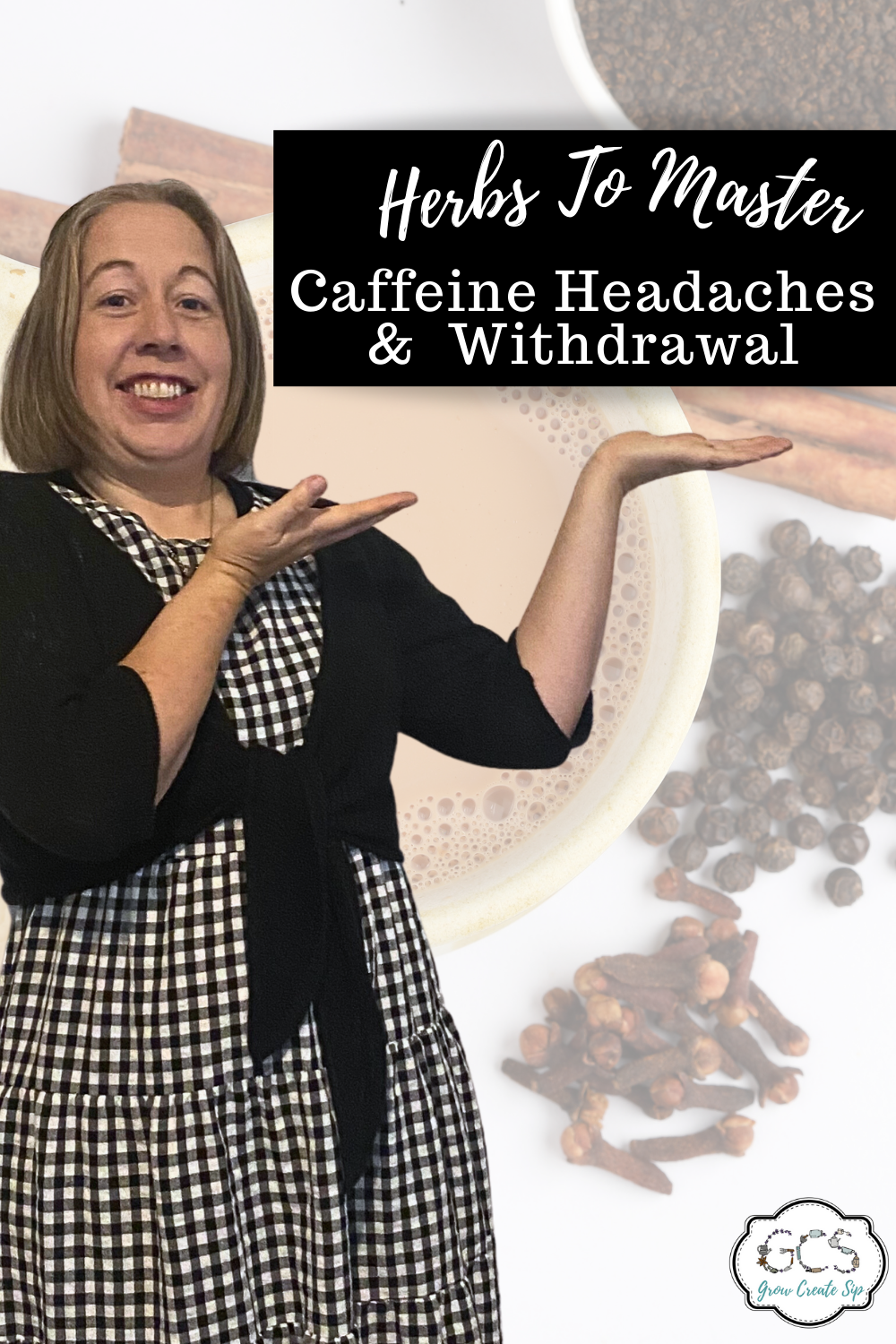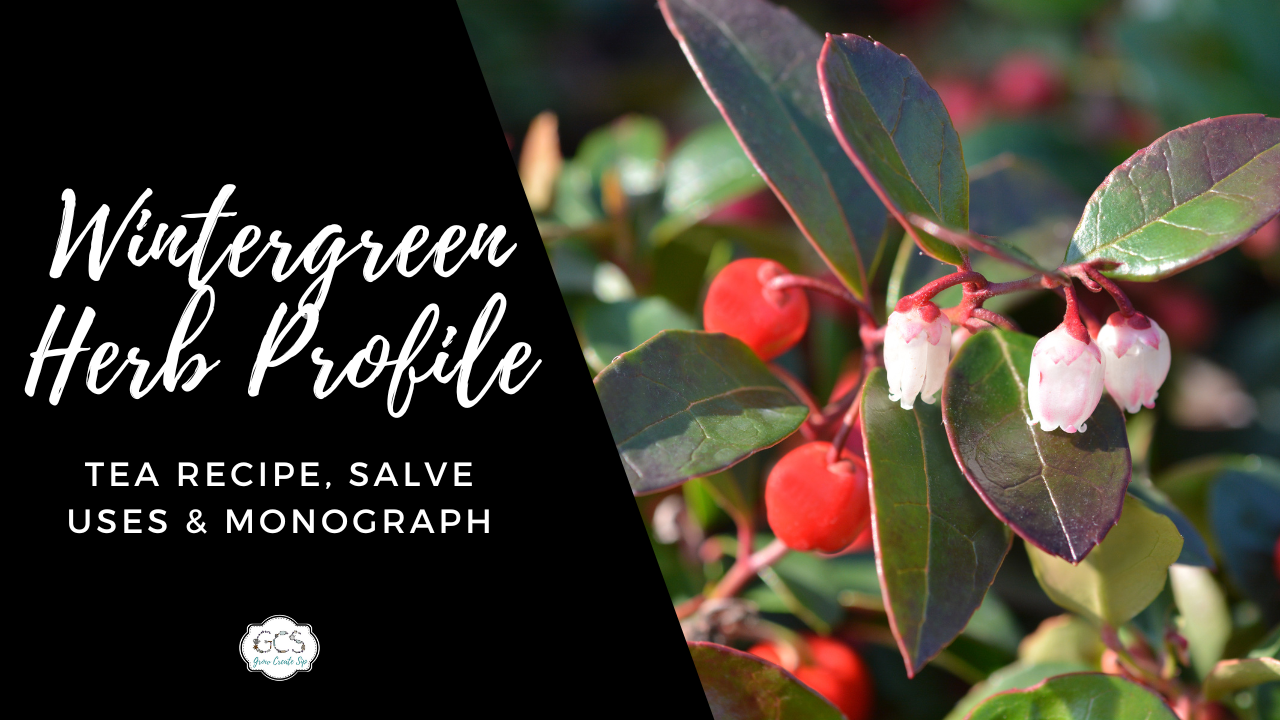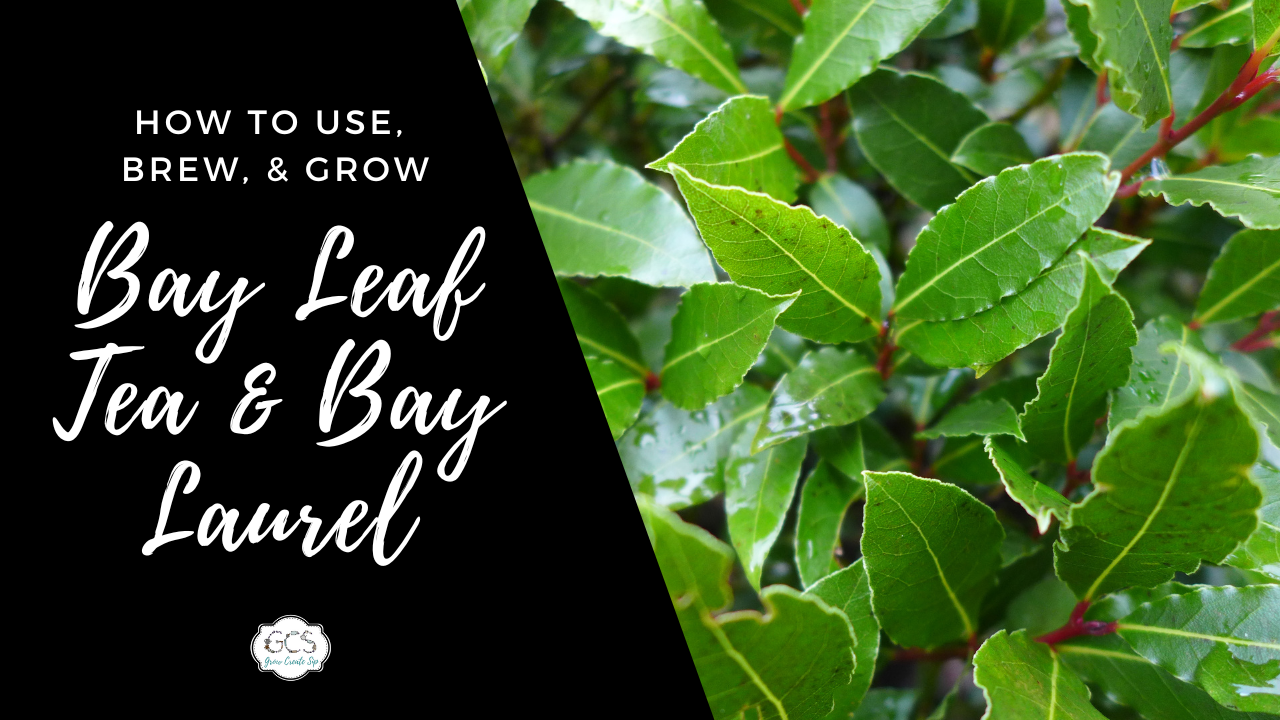Herbs for Mastering Caffeine Withdrawal & Coffee Headaches
Oct 24, 2023
Coffee- that smell in the morning, the kind that wakes you up, is one that 150,000 Americans depend on every morning. Caffeine is the reason that many Americans drink coffee. It provides a pick-me-up, it boosts mood and energy as well as acting as a stimulant to the brain.
Chances are if you are reading this you love coffee, but you're starting to feel its side effects such as stomach aches. You crave it to sleep, but it also keeps you awake. You get headaches when you don't have coffee, and when you do have it. Your family avoids you in the morning until you've had your coffee.
You're sick and tired of the withdrawal headaches and the feeling that you need coffee to function. You've been told to cut back, but you don't know where to start. You might even be a little grumpy. Well my friend I was there once too and I have some tips for you today on how I got out of that place.
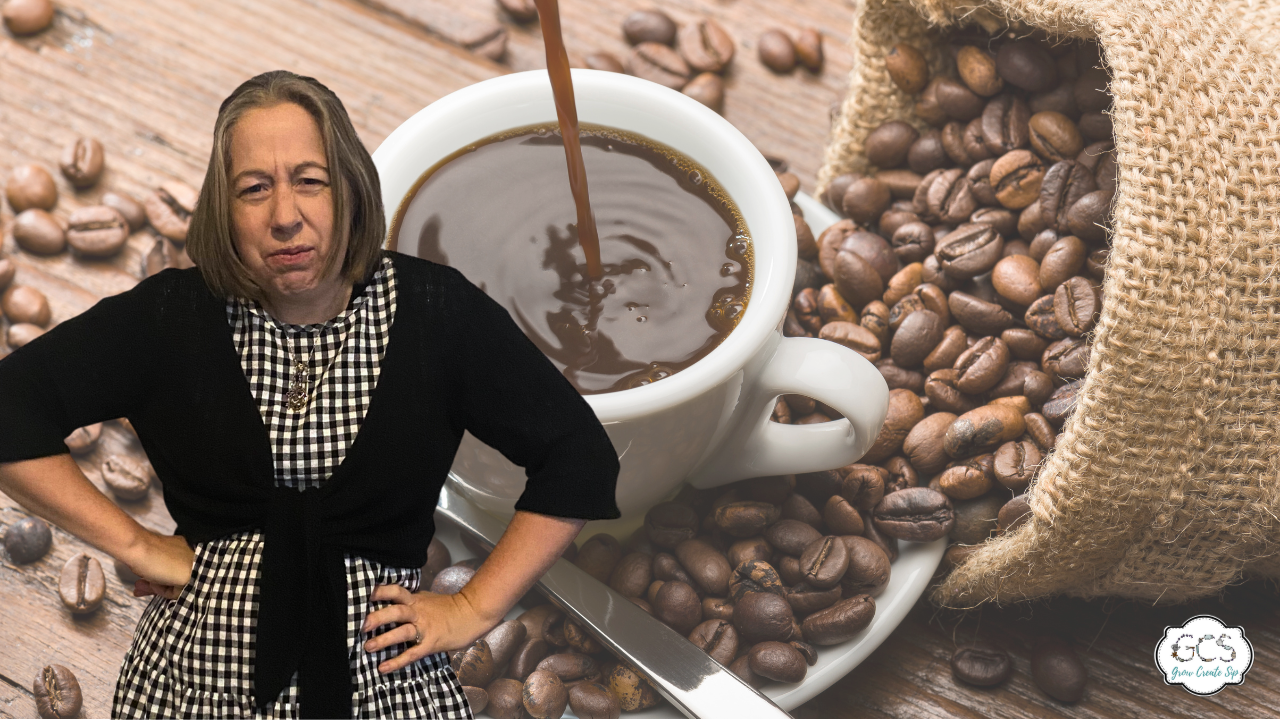
The Legal Stuff
This blog is provided by St. Fiacre's Farm LLC for informational purposes only. It does not constitute medical advice, and you should always seek the advice of a qualified healthcare provider for any medical questions or concerns. Please note that we may earn a small commission on any purchases you make through our affiliate links, at no additional cost to you. Thank you for your support!
What is Caffeine Withdrawal?
Coffee withdrawal is a group of symptoms that occur when you suddenly stop or reduce your caffeine intake. Caffeine is a stimulant that can disrupt the body's natural balance, and when you stop consuming it, your body craves it to function normally. This creates dependency, and when the dependency isn't fed, you experience coffee withdrawal.
Caffeine Detox Symptoms
The severity of withdrawal symptoms (detox symptoms) depends on a number of factors, including how much caffeine the person was consuming, how long they had been consuming it, and their individual sensitivity to caffeine which often correlates to the health of the person’s liver and adrenal systems as well as general health.
Common caffeine withdrawal symptoms include:
- Headache
- Fatigue
- Difficulty concentrating
- Irritability
- Mood swings
- Anxiety
- Insomnia
- Constipation
- Dry skin
When I consume caffeine my symptoms usually show up looking like difficulty focusing and having an abundance of ideas that I can’t focus on long enough to do anything about them. My anxiety and worry is very high and I definitely don’t sleep at night resulting in fatigue the next day until I have recovered. I have a very high, high and a low, low and the roller coaster is not fun!

Dealing with a Caffeine Headache
When someone is experiencing a caffeine withdrawal headache it is often described as a widespread, throbbing pain in the head. You know that pounding type of headache?
The mechanism by which caffeine withdrawal headaches occur is not fully understood, but it is thought to be related to the effects of caffeine on blood vessels in the brain. Caffeine is a vasoconstrictor, which means that it causes blood vessels to narrow. When caffeine intake is stopped, blood vessels in the brain dilate (expand), which can lead to headache pain.
People who consume caffeine on a daily basis are more likely to experience withdrawal headaches than people who consume caffeine only occasionally. People who are more sensitive to caffeine, like me, are also more likely to experience withdrawal headaches.
Caffeine withdrawal headaches are most common in people who consume more than 200 milligrams (mg) of caffeine per day according to a 2014 study published by NIH.
The great news is that herbs can help! Let’s cover some herbs that can help with pounding headaches.
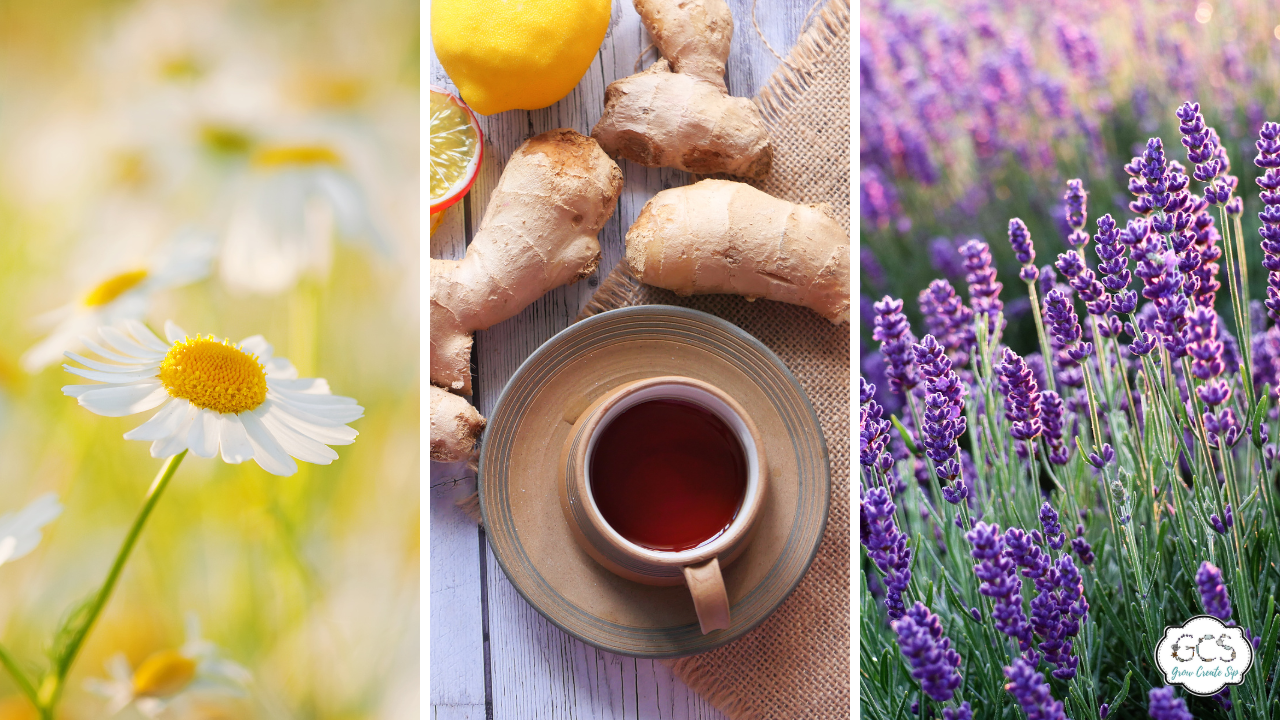
Remedies for Throbbing Headaches
|
Herb |
How it helps headaches |
Dosage |
|
Peppermint |
Relaxes blood vessels and improves circulation, has anti-inflammatory and analgesic properties |
1-3 cups of peppermint tea, 2-3 drops of peppermint essential oil applied topically to the forehead or temples, 250-500 mg of peppermint capsules |
|
Feverfew |
Contains compounds that can help to reduce inflammation and block the release of prostaglandins, which are chemicals that contribute to headache pain |
50-150 mg of feverfew capsules, 1-2 cups of feverfew tea |
|
Ginger |
Has anti-inflammatory and analgesic properties |
1-2 cups of ginger tea, 1-2 capsules of ginger extract, 1-2 grams of fresh ginger grated and added to food |
|
Chamomile |
Calming herb that can help to reduce anxiety and promote relaxation |
1-2 cups of chamomile tea, 200-400 mg of chamomile capsules |
|
Lavender |
Another calming herb that can be helpful for reducing anxiety and promoting relaxation |
1-2 cups of lavender tea, 200-400 mg of lavender capsules, 5-10 drops of lavender essential oil added to a bath or diffuser |
How Long Do Caffeine Withdrawal Symptoms Last?
Ah, the million-dollar question. Caffeine withdrawal time can typically begin within 12-24 hours of stopping or reducing caffeine intake. As there are different body types and different sensitivities along with different health conditions the duration of caffeine withdrawal symptoms can be varied. Some additional factors may include the amount of caffeine you consumed, and your overall health. Generally, they can last anywhere from a few days to a couple of weeks. It all depends on the individual and their specific imbalances. My own personal experience is that I tend to get highly caffeinated very easily and then crash very low when it wears off. It happens quickly on both ends unless I continue to drink caffeine.
Adrenal Health and Caffeine
Caffeine is a stimulant drug that affects many different systems in the body, including the adrenal system. The adrenal system is a group of glands that produce hormones that help the body respond to stress. When the adrenal system is activated, it releases hormones such as cortisol and adrenaline. These hormones help the body to prepare for a fight-or-flight response.
In the short term, caffeine can stimulate the adrenal system to release more cortisol and adrenaline. This can lead to increased alertness, energy, and focus. Caffeine can also improve mood and physical performance. That all sounds great and dandy. Until it’s not.
These effects are only temporary. Kinda like a shopping spree on a credit card. Once the caffeine wears off, the body will experience a period of fatigue and decreased energy levels. This is because the body is now in adrenal debt and has used up its stores of cortisol and adrenaline. The adrenals now have a deficiency in what they require to function normally.
Over time, regular caffeine consumption can lead to adrenal fatigue. Adrenal fatigue is a condition in which the adrenal glands become overworked and unable to produce enough cortisol and adrenaline. This can lead to a variety of symptoms, including fatigue, difficulty concentrating, mood swings, and sleep problems which over the long term can lead to more serious health problems such as metabolic diseases, high blood pressure, and heart disease just to name a few.

Managing Caffeine Withdrawal Symptoms with Herbs
Now, let's talk about how we can make coming off the caffeine journey in general a bit smoother using herbal remedies. These are a bit different than the ones above specifically for headaches.
First and foremost, it's important to stay hydrated and nourished. Drink plenty of warm water either plain or infused with calming herbs like chamomile or ashwagandha. Chamomile is not only a calming nervine but it also soothes the digestive system. Its a wonderful herb for racing thoughts, anxiety, stress and pairs so well with many other herbs like lemon balm to make a tasty tea. Ashwagandha is a nourishing herb to the nervous system which will make your nervous system stronger over time.
Eating a balanced diet with emphasis on grounding foods and spices can also support your body during the transition off of caffeine such as satiating good fats (ghee, coconut oil, pastured meats, raw cultured butter), whole grains, beans, nuts, and root vegetables. These wonderful grounding herbs will also be helpful!
|
Herb |
Benefits |
Dosage |
Frequency |
|
Ginger |
Improves digestion, relieves nausea |
500-1000 mg |
1-2x daily |
|
Turmeric |
Anti-inflammatory, reduces stress |
500-1000 mg |
1-2x daily |
|
Cinnamon |
Improves circulation, reduces inflammation |
250-500 mg |
1-2x daily |
|
Cumin |
Improves digestion, relieves bloating |
250-500 mg |
1-2x daily |
|
Black pepper |
Improves digestion, relieves gas |
125-250 mg |
1-2x daily |
|
Fennel |
Improves digestion, relieves nausea |
250-500 mg |
1-2x daily |
|
Coriander |
Improves digestion, relieves bloating |
250-500 mg |
1-2x daily |
|
Cardamom |
Improves digestion, relieves nausea |
125-250 mg |
1-2x daily |
|
Nutmeg |
Improves digestion, relieves nausea |
125-250 mg |
1-2x daily |
|
Mace |
Improves digestion, relieves nausea |
125-250 mg |
1-2x daily |
Golden turmeric lattes and herbal marsala chais will contain a great many of these grounding spices.

Photo by Kayla Joy Creative
Lifestyle Tips for Coming Off Caffeine Highs
Herbs are a lovely option but herbs will only work when making some lifestyle changes as well!
- Prioritize a regular sleep routine that has you in bed by 10 pm
- Put a priority on relaxing a minimum of 2 hours before bed (turn off the blue light on your phone and put the phone to bed)
- Eat a whole foods, in season, nourishing diet and do not eat after 6 pm (your digestive system starts shutting down at 4 pm)
- Make sure to move! Gentle exercises such walking or daily stretches
- Gently cut back the caffeine over time and then replace with nourishing hot drinks
- Breathing exercises, especially deep breathing can help stress, anxiety and racing thoughts.
Step-By-Step Process for Cutting Down on Caffeine
I quit coffee cold turkey when I was diagnosed with a lump in my breast. The doctor said caffeine could have caused it. The lump was benign, but I was so scared that I cut out all caffeine immediately. This isn't recommended, but it can be done.
Over time, I learned to eat a healthy diet of whole, nutrient-rich foods with good fats. This made me feel more satisfied and less anxious. I didn’t end up being dependent on coffee because I had the nourishing foods my body needed.
Finding the right coffee replacement was another story though. Changing out one’s food is one thing but that coffee flavor and smell? It’s hard to beat.
Upon finding only teas that tasted like grass I eventually decided to blend my own tea and coffee replacements. My absolute favorite these days is the Not Coffee Line we have at Farmhouse Teas.
Here is how I recommend cutting back on coffee and caffeine:
- Reduce the number of cups you drink each day. If you currently drink 10 cups, start by drinking 9 cups, then 8 cups, and so on, until you are down to 2-3 cups per day.
- Replace caffeinated drinks with less caffeinated drinks. For example, you could switch from energy drinks to coffee or black tea, or from black tea to green tea.
- Once you are down to 1-2 cups of a low-caffeine drink per day, you can start to eliminate caffeine from your diet completely. To do this, you can dilute coffee, green tea, or black tea with water, or add a little coffee to your favorite decaffeinated coffee blends. Gradually increase the ratio of decaffeinated coffee to regular coffee until you are drinking only decaffeinated coffee.
- Once you are off caffeine then replace your coffee with my favorite Not Coffee that has a bold flavor and thickness to it that takes cream and sweetener of choice. It is my daily go-to coffee replacement in the colder months.
This may only take a week or it may take several months but the key is to go slowly according to how your body adjusts to less caffeine.
Coffee Addict Gone Tea Drinker
Quitting coffee is hard because it smells good and tastes unique. I still enjoy decaf coffee sometimes (swiss water process only), but caffeine makes me feel wired and drained. It's not worth it to my health and family.
If you would like even more in depth tips make sure to grab the free Coffee Drinker’s Guide to Loose Leaf tea here. I'd love to know before you go though, how caffeine affects you and how you have handled it in the past. Leave a comment below. I’d love to see if y’all have additional tips for the rest of the coffee drinkers here.
More Reading for Coffee Lovers
- Why does coffee make my stomach hurt?
- Is Coffee Acidic?
- Benefits of Dandelion Coffee
- Healthy Homemade Creamer
- Headache Remedies & Best Tea for Headaches
- How to Make a Chai Tea Latte
- Caffeine Free Teas and How to Decide
- Does Chai Tea Have Caffeine?
